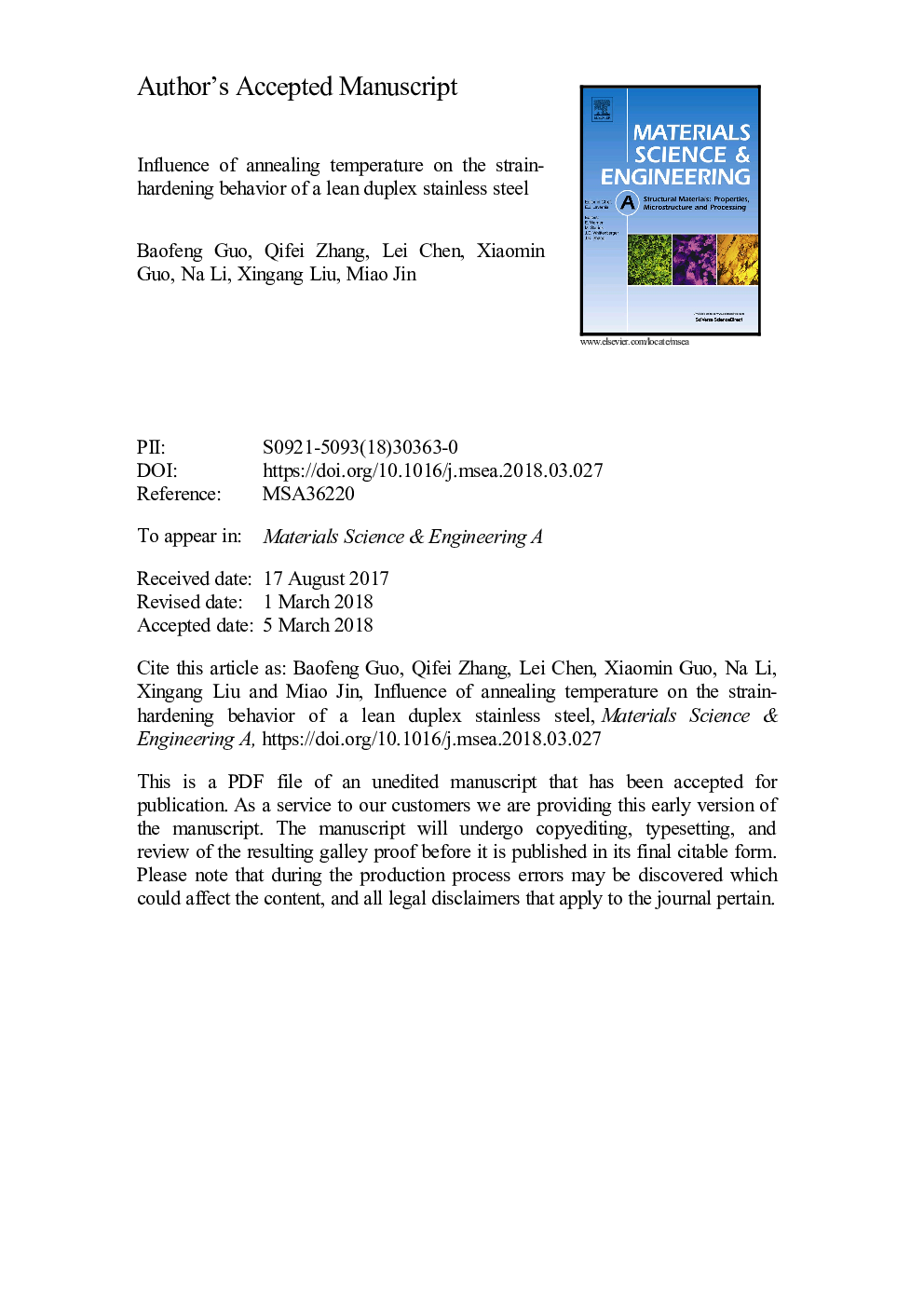| Article ID | Journal | Published Year | Pages | File Type |
|---|---|---|---|---|
| 7972800 | Materials Science and Engineering: A | 2018 | 50 Pages |
Abstract
The influence of varying the annealing temperature from 1000â¯Â°C to 1200â¯Â°C on the strain-hardening behavior of a lean duplex stainless steel with a metastable austenite phase was investigated by tensile deformation. The results indicated that the tensile properties of the test steel were sensitive to the annealing temperature. The test steel showed enhanced ultimate tensile strength (UTS) and elongation due to the transformation-induced plasticity (TRIP) or/and the twinning-induced plasticity (TWIP) effects. The optimum combination of UTS and ductility with approximately 60â¯GPa% was obtained at an annealing temperature of 1050â¯Â°C. The shape of the strain-hardening curve for the selected annealing temperature range could be divided into two cases: (i) a typical three-stage strain-hardening from 1000 to 1050â¯Â°C and (ii) a multiple-stage strain-hardening from 1100 to 1200â¯Â°C. Microstructural observations revealed that the typical three-stage hardening was mainly related to a strain-induced martensitic transformation with a sequence of γâεâα', i.e., the TRIP effect. In addition to the strain-induced martensites, mechanical twins were observed in the deformed austenite of the specimens annealed at temperatures above 1100â¯Â°C. This result indicated that TRIP and TWIP occurred concurrently in the austenite at higher annealing temperatures. The synergy and mutual competition from the coexistence of TRIP and TWIP caused the multiple-stage strain-hardening.
Related Topics
Physical Sciences and Engineering
Materials Science
Materials Science (General)
Authors
Baofeng Guo, Qifei Zhang, Lei Chen, Xiaomin Guo, Na Li, Xingang Liu, Miao Jin,
